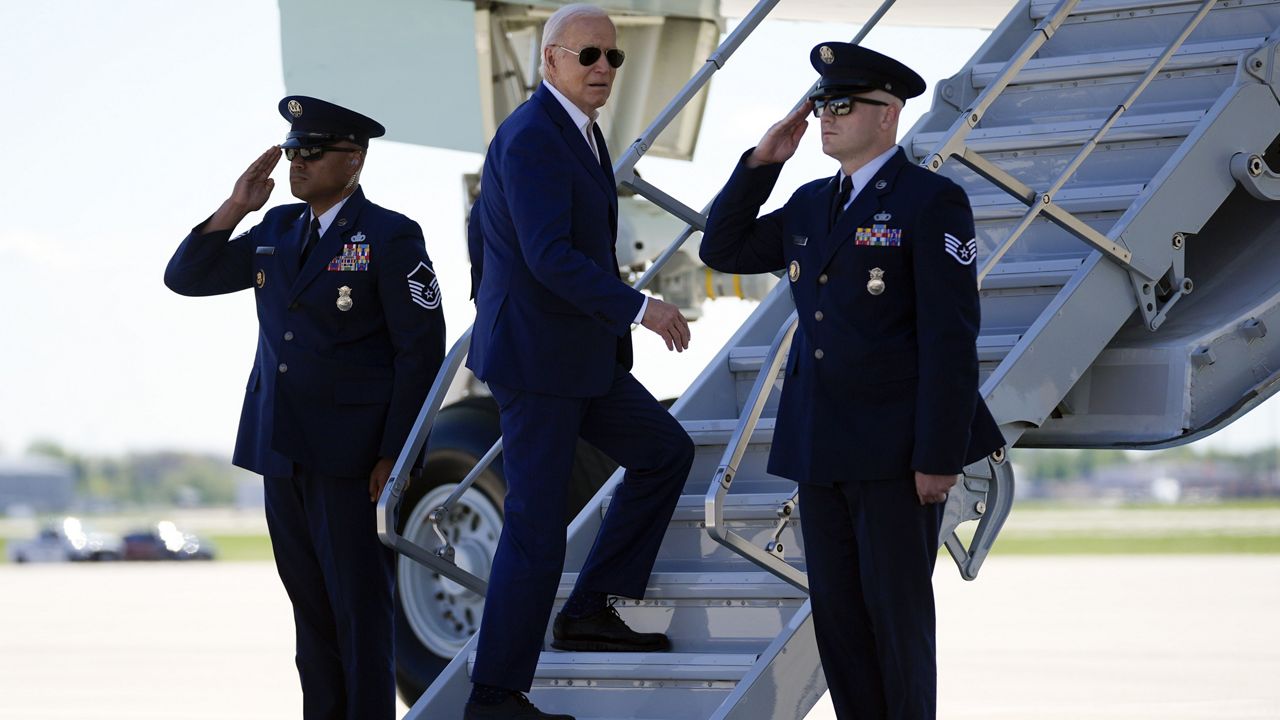President Joe Biden on Wednesday said in an interview with CNN that he would not supply Israel with weapons that could be used in an invasion of Rafah, a move that would mark a notable development in the United States’ response thus far to the war in Gaza.
“Civilians have been killed in Gaza as a consequence of those bombs and other ways in which they go after population centers,” Biden told CNN anchor Erin Burnett in an interview in Wisconsin on Wednesday.
“I made it clear that if they go into Rafah — they haven’t gone in Rafah yet — if they go into Rafah, I’m not supplying the weapons that have been used historically to deal with Rafah, to deal with the cities — that deal with that problem,” the president added.
It comes on the same day that Defense Secretary Lloyd Austin confirmed that the U.S. paused “one shipment of high payload munitions,” to Israel over concerns about how they could be used in Rafah.
Austin made the comment during a Senate panel in which he was testifying in front of about next year’s defense budget.
This week, Israel appeared to take initial steps toward a long-promised ground invasion of the southern Gaza city of Rafah, where more than a million civilians are sheltering — a move the Biden administration opposes without a plan to protect civilians.
Biden and Israeli Prime Minister Benjamin Netanyahu spoke on Monday in a call in which the U.S. president “reiterated his clear position” on the topics, according to the White House.
Austin added that the administration is “reviewing” some additional assistance shipments to the country depending on events in Rafah. At the same time, the Pentagon chief echoed Biden’s thus far unwavering commitment to Israel’s security.
“We’re going to continue to do what’s necessary to ensure that Israel has the means to defend itself,” he said on Wednesday.
Biden has faced pressure internationally and from some at home over his continued support of Israel as the Palestinian death toll has risen and the humanitarian crisis worsened amid Israel’s retaliatory campaign in Gaza.
In recent weeks, college campuses around the country have erupted with students protesting Israel and Biden’s handling of the war, leading to more than 2,300 arrests.
And some Democrats in Congress have called on the Biden administration to put conditions on future military aid to Israel.
Meanwhile, the Biden administration said it will miss Wednesday’s deadline to submit a highly-anticipated report to Congress assessing Israel’s actions in its war against Hamas in Gaza.
“It will not be transmitted today, we continue to work to finalize the report, we expect to deliver it in the very near future, in the coming days,” State Department Spokesperson Matthew Miller said of the report at the department’s Wednesday press briefing.
When pressed by reporters on timing, Miller referred to the missed deadline as a “brief delay,” declining to say exactly when the report would be handed over, including whether it would happen by the end of the week.
In February, President Joe Biden issued a National Security Memorandum that requires his administration to submit a report to Congress within 45 days —which makes the deadline Wednesday, May 8 — determining whether it finds Israel’s assurances that it is not violating international humanitarian law accurate.




